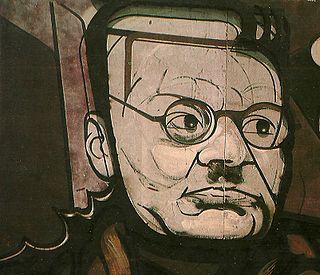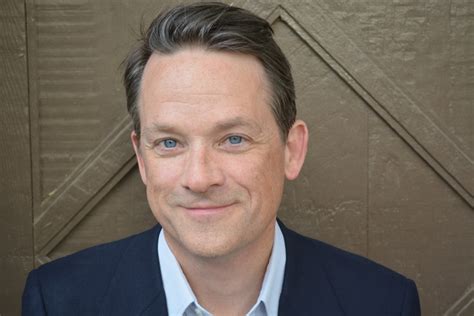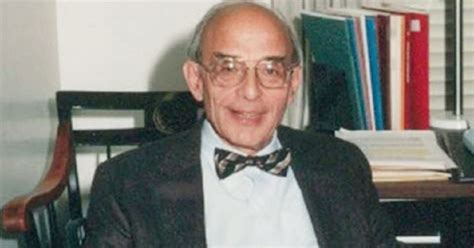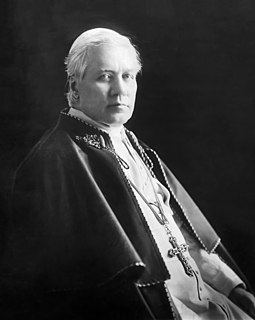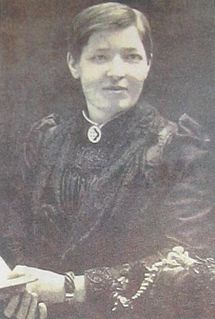Top 889 Errors Quotes & Sayings - Page 14
Explore popular Errors quotes.
Last updated on April 21, 2025.
Systems of religious error have been adopted in times of ignorance. It has been the interest of tyrannical kings, popes, and prelates to maintain these errors. When the clouds of ignorance began to vanish and the people grew more enlightened, there was no other way to keep them in error but to prohibit their altering their religious opinions by severe persecuting laws. In this way persecution became general throughout Europe.
Unlike earlier thinkers, who had sought to improve their accuracy by getting rid of error, Laplace realized that you should try to get more error: aggregate enough flawed data, and you get a glimpse of the truth. "The genius of statistics, as Laplace defined it, was that it did not ignore errors; it quantified them," the writer Louis Menand observed. "...The right answer is, in a sense, a function of the mistakes.
Criticism is above all a gift, an intuition, a matter of tact and flair; it cannot be taught or demonstrated--it is an art. Critical genius means an aptitude for discerning truth under appearances or in disguises which conceal it; for discovering it in spite of the errors of testimony, the frauds of tradition, the dust of time, the loss or alteration of texts. It is the sagacity of the hunter whom nothing deceives for long, and whom no ruse can throw off the trail.
Developing fewer features allows you to conserve development resources and spend more time refining those features that users really need. Fewer features mean fewer things to confuse users, less risk of user errors, less description and documentation, and therefore simpler Help content. Removing any one feature automatically increases the usability of the remaining ones.
Errors and exaggerations do not matter. What matters is boldness in thinking with a strong-pitched voice, in speaking out about things as one feels them in the moment of speaking; in having the temerity to proclaim what one believes to be true without fear of the consequences. If one were to await the possession of the absolute truth, one must be either a fool or a mute. If the creative impulse were muted, the world would then be stayed on its march.
I should esteem it the extreme of imprudence to prolong the precarious state of our national affairs, and to expose the Union to the jeopardy of successive experiments, in the chimerical pursuit of a perfect plan. I never expect to see a perfect work from imperfect man. The result of the deliberations of all collective bodies must necessarily be a compound, as well of the errors and prejudices, as of the good sense and wisdom, of the individuals of whom they are composed.
Nature is more subtle, more deeply intertwined and more strangely integrated than any of our pictures of her than any of our errors. It is not merely that our pictures are not full enough; each of our pictures in the end turns out to be so basically mistaken that the marvel is that it worked at all.
Those experienced in work must take up the study of theory and must read seriously; only then will they be able to systematize and synthesize their experience and raise it to the level of theory, only then will they not mistake their partial experience for universal truth and not commit empiricist errors.
And so, onwards... along a path of wisdom, with a hearty tread, a hearty confidence.. however you may be, be your own source of experience. Throw off your discontent about your nature. Forgive yourself your own self. You have it in your power to merge everything you have lived through- false starts, errors, delusions, passions, your loves and your hopes- into your goal, with nothing left over.
Deep practice feels a bit like exploring a dark and unfamiliar room. You start slowly, you bump into furniture, stop, think, and start again. Slowly, and a little painfully, you explore the space over and over, attending to errors, extending your reach into the room a bit farther each time, building a mental map until you can move through it quickly and intuitively.
The brain cannot multitask. Multitasking, when it comes to paying attention, is a myth. The brain naturally focuses on concepts sequentially, one at a time…To put it bluntly, research shows that we can’t multitask. We are biologically incapable of processing information-rich inputs simultaneously…Studies show that a person who is interrupted takes 50 percent longer to accomplish a task. Not only that, he or she makes up to 50 percent more errors.
The little I have seen of the world teaches me to look upon the errors of others in sorrow, not in anger. When I take the history of one poor heart that has sinned and suffered, and represent to myself the struggles and temptations it has passed through, the brief pulsations of joy, the feverish inquietude of hope and fear, the pressure of want, the desertion of friends, I would fain leave the erring soul of my fellow-man with Him from whose hand it came.
For most of us the rules of English grammar are at best a dimly remembered thing. But even for those who make the rules, grammatical correctitude sometimes proves easier to urge than to achieve. Among the errors cited in this book are a number committed by some of the leading authorities of this century. If men such as Fowler and Bernstein and Quirk and Howard cannot always get their English right, is it reasonable to expect the rest of us to?
Being thankful helps you to be present.People commit errors because they are not present.I would encourage women and men to be present - you'll avoid falling into certain pits.For instance, if you know that a person has just lost his wife or her husband or lover, it's unlikely that you will say something that will hurt that person's feelings if you're truly paying attention. You'll make a sweeter life for yourself and for those around you if you are present.
Your actions are your own. Your choices are your own. Each of us carries a burden of guilt for decisions made or not made. You can let that rule your whole life or you can put it behind you and move on. Only a madman lets jealousy determine the course of his existence. Only a weak man blames others for his own errors.
It does not follow, because our ancestors made so many errors of fact and mixed them with their religion, that we should therefore leave off being religious at all. By being religious we establish ourselves in possession of ultimate reality at the only points at which reality is given us to guard. Our responsible concern is with our private destiny, after all.
How do you remember everything from different books when you are still writing the HP series? As obsessive fans will tell you, I do slip up! Several classrooms move floors mysteriously between books and these are the least serious continuity errors! Most of the fansites will point you in the direction of my mistakes. But the essentials remain consistent from book to book because the story has been plotted for a long time and it is clear in my mind.
We are guilty of many errors and many faults, But our worst crime is abandoning the children, Neglecting the fountain of life. Many of the things we need can wait. The child cannot. Right now is the time his bones are being formed, His blood is being made, And his senses are being developed. To him we cannot answer 'Tomorrow.' His name is 'Today.'
Some say they are not bound by the doctrine which teaches that the Mystical Body of Christ and the Roman Catholic Church are one and the same thing. Some reduce to a meaningless formula the necessity of belonging to the true Church in order to gain eternal salvation. Others finally belittle the reasonable character of the credibility of Christian Faith. These and like errors, it is clear, have crept in among certain of our sons who are deceived by imprudent zeal for souls or by false science.
In any case, you read with exasperation or amusement the multiple errors in a story-and then turn the page to national or international affairs, and read with renewed interest as if the rest of the newspaper was somehow more accurate about far-off Palestine than it was about the story you just read. You turn the page, and forget what you know.
We have prayed, we have coaxed, we have begged, for the vote, with the hope that men, out of chivalry, would bestow equal rights upon women and take them into partnership in the affairs of the state. We hoped that their common sense would triumph over prejudices and stupidity. We thought their boasted sense of justice would overcome the errors that so often fetter the human spirit; but we have always gone away empty handed. We shall beg no more.
You know in politics you are dealing in the realm of choices. You don't always have clear-cut decision between a thoroughly principled position and a thoroughly unprincipled one. You're making snap decisions with paucity of information, generally trying to do the best that you can, but you will make errors, and sometimes it's a decision between a bad and a worse alternative. It has to be done, because we need to order our society, and of politics it can literally be said: Bad job, but someone's got to do it.
Eternal life does not violate the laws of physics. After all, we only die because of one word: "error." The longer we live, the more errors there are that are made by our bodies when they read our genes. That means cells get sluggish. The body doesn't function as well as it could, which is why the skin ages. Then organs eventually fail, so that's why we die.
All truths are erroneous. This is the very essence of the dialectical process: today's truths become errors tomorrow; there is no final number. This truth (the only one) is for the strong alone. Weak-nerved minds insist on a finite universe, a last number; they need, in Nietzsche's words, "the crutches of certainty". The weak-nerved lack the strength to include themselves in the dialectic syllogism.
I started by saying that one of the most fateful errors of our age is the belief that the problem of production has been solved. This illusion, I suggested, is mainly due to our inability to recognize that the modern industrial system, with all its intellectual sophistication, consumes the very basis on which is has been erected. To use the language of the economist, it lives on irreplaceable capital which it cheerfully treats as income.
No matter what the belief, if it had modestly said, 'This is our best thought, go on, think farther!' then we could have smoothly outgrown our early errors and long since have developed a religion such as would have kept pace with an advancing world. But we were made to believe and not allowed to think. We were told to obey, rather than to experiment and investigate.
We like to think we're superior to the people who, centuries ago, burned 'witches' for no better reason than a neighbor's belief that his crop failure or impotence was caused by that woman's action. But reporters are still prone to the same mental errors that caused these killings: seeing patterns where there are none, finding causes where there is only coincidence, ignoring our sources' political agendas and turning scanty evidence into panic.
For the Members of the Assembly having before their eyes so many fatal Instances of the errors and falshoods, in which the greatest part of mankind has so long wandred, because they rely'd upon the strength of humane Reason alone, have begun anew to correct all Hypotheses by sense, as Seamen do their dead Reckonings by Cœlestial Observations; and to this purpose it has been their principal indeavour to enlarge and strengthen the Senses by Medicine, and by such outward Instruments as are proper for their particular works.
When I look back on my past and think how much time I wasted on nothing, how much time has been lost in futilities, errors, laziness, incapacity to live; how little I appreciated it, how many times I sinned against my heart and soul-then my heart bleeds. Life is a gift, life is happiness, every minute can be an eternity of happiness.
The most part of men, though they have the use of reasoning a little way, as in numbering to some degree; yet it serves them to little use in common life; in which they govern themselves, some better, some worse, according to their differences of experience, quickness of memory, and inclinations to several ends; but specially according to good or evil fortune, and the errors of one another.
Most people define learning too narrowly as mere 'problem-solving', so they focus on identifying and correcting errors in the external environment. Solving problems is important. But if learning is to persist, managers and employees must also look inward. The need to reflect critically on their own behaviour, identify the ways they often inadvertently contribute to the organisation’s problems, and then change how they act.
It may be the will of Heaven that America shall suffer calamities still more wasting, and distresses yet more dreadful. If this is to be the case, it will have the good effect at least. It will inspire us with many virtues, which we have not, and correct many errors, follies and vices. But I must submit all my hopes and fears to an overruling Providence, in which, unfashionable as the faith may be, I firmly believe.
One of the most dangerous errors is that civilization is automatically bound to increase and spread. The lesson of history is the opposite; civilization is a rarity, attained with difficulty and easily lost. The normal state of humanity is barbarism, just as the normal surface of the planet is salt water. Land looms large in our imagination and civilization in history books, only because sea and savagery are to us less interesting.
We ought not to look back, unless it is to derive useful lessons from past errors, and for the purpose of profiting by dear bought experience. To enveigh against things that are past and irremediable, is unpleasing; but to steer clear of the shelves and rocks we have struck upon, is the part of wisdom, equally as incumbent on political as other men, who have their own little bark, or that of others, to navigate through the intricate paths of life, or the trackless ocean, to the haven of security and rest.
What, unless biological science is a mass of errors, is the cause of human intelligence and vigour? Hardship and freedom: conditions under which the active, strong, and subtle survive and the weaker go to the wall; conditions that put a premium upon the loyal alliance of capable men, upon self-restraint, patience, and decision. And the institution of the family, and the emotions that arise therein, the fierce jealousy, the tenderness for offspring, parental self-devotion, all found their justification and support in the imminent dangers of the young.
Since the white man says he came from the evolution of animals, well, maybe the black man didn't. The white man has made so many errors in the handling of people that maybe he did come from a gorilla or a fish and crawl up on the sand and then into the trees. Of course, evolution doesn't take God into consideration. I don't think people learned to do all the things they do through evolution.
One of the great errors organizations make is shutting down what is a natural, life-enhancing process-chaos. We are terrified of chaos. As a manager, it signals failure. But if you move out of control and into an appreciation of natural order, you understand that the only way a system changes is when it is far from equilibrium, when it moves from the 'quiet' we treasure and is confronted with the choice to die or reorganize. And you can't reorganize to a higher level unless you risk the perils of the path through chaos.
A scientist strives to understand the work of Nature. But with our insufficient talents as scientists, we do not hit upon the truth all at once. We must content ourselves with tracking it down, enveloped in considerable darkness, which leads us to make new mistakes and errors. By diligent examination, we may at length little by little peel off the thickest layers, but we seldom get the core quite free, so that finally we have to be satisfied with a little incomplete knowledge.
A general in time of war is constantly bombarded by reports both true and false; by errors arising from fear or negligence or hastiness; by disobedience born of right or wrong interpretations, of ill will; of a proper or mistaken sense of duty; of laziness; or of exhaustion; and by accident that nobody could have foreseen. In short, he is exposed to countless impressions, most of them disturbing, few of them encouraging. ... If a man were to yield to these pressures, he would never complete an operation.
Some of Kant's particular moral opinions, either because he shared the prejudices of his time, or because of his own personal crotchets, can strike sensible people as ridiculous or offensive. But in my view, his own theory provides us with the resources (the best resources available, I believe) to correct his own personal errors or cultural prejudices.
Power. like the diamond, dazzles the beholder, and also the wearer; it dignifies meanness; it magnifies littleness; to what is contemptible, it gives authority; to what is low, exaltation. To acquire it, appears not more difficult than to be dispossessed of it when acquired, since it enables the holder to shift his own errors on dependents, and to take their merits to himself. But the miracle of losing it vanishes, when we reflect that we are as liable to fall as to rise, by the treachery of others; and that to say "I am" is language that has been appropriated exclusively to God!
History is not truth versus falsehoods, but a mixture of both, a mélange of tendencies, reactions, dreams, errors, and power plays. What's important is what we make of it; its moral use. By writing history, we can widen readers' thinking and deepen their sympathies in every direction. Perhaps history should show us not how to control the world, but how to enlarge, deepen, and discipline ourselves.
There cannot be a language more universal and more simple, more free from errors and obscurities...more worthy to express the invariable relations of all natural things [than mathematics]. [It interprets] all phenomena by the same language, as if to attest the unity and simplicity of the plan of the universe, and to make still more evident that unchangeable order which presides over all natural causes
Even if the being is not entirely purified, varieties of inspirations and powers may come down from above but this may lead to serious errors. Inspirations from above mixing with the impurities from below get all muddled up and the sadhak takes this for an absolute command. Many a sadhak has thus fallen into danger. Therefore, one must particularly lay stress on the purification of the being.
Character is something each one of us must build for himself, out of the laws of God and nature, the examples of others, and - most of all - out of the trials and errors of daily life. Character is the total of thousands of small daily strivings to live up to the best that is in us. Character is the final decision to reject whatever is demeaning to oneself or to others and with confidence and honest to choose the right.
Never for a moment believe that the great body of the citizens of any State or States can deliberately intend to do wrong. They may, under the influence of temporary excitement or misguided opinions, commit mistakes; they may be misled for a time by the suggestions of self-interest; but in a community so enlightened and patriotic as the people of the United States argument will soon make them sensible of their errors, and when convinced they will be ready to repair them.
Our approach to existential risks cannot be one of trial-and-error. There is no opportunity to learn from errors. The reactive approach - see what happens, limit damages, and learn from experience - is unworkable. Rather, we must take a proactive approach. This requires foresight to anticipate new types of threats and a willingness to take decisive preventive action and to bear the costs (moral and economic) of such actions.
After a time," said old Mathers disregarding me, "I mercifully perceived the errors of my ways and the unhappy destination I would reach unless I mended them. I retired from the world in order to try to comprehend it and to find out why it becomes more unsavoury as the years accumulate on a man's body. What do you think I discovered at the end of my meditations?" I felt pleased again. He was now questioning me. "What?" "That No is a better word than Yes," he replied.
Though the two issues may seem utterly unrelated, they do have this in common - both health care and higher education are realms of American life in which government has undermined the operation of market forces and caused artificially high prices. These are two arenas in which the Democrats now propose to do exactly the wrong thing. Their reform reinforces old errors and will infinitely compound the problem of rising prices.
Most people willingly deceive themselves with a doubly false faith; they believe in eternal memory (of men, things, deeds, peoples) and in rectification (of deeds, errors, sins, injustice). Both are sham. The truth lies at the opposite end of the scale: everything will be forgotten and nothing will be rectified. All rectification (both vengeance and forgiveness) will be taken over by oblivion.
To do the right thing, at the right time, in the right way; to do some things better than they were ever done before; to eliminate errors; to know both sides of the question; to be courteous; to be an example; to work for the love of work; to anticipate requirements; to develop resources; to recognize no impediments; to master circumstances; to act from reason rather than rule; to be satisfied with nothing short of perfection.
But since the Modernists (as they are commonly and rightly called) employ a very clever artifice, namely, to present their doctrines without order and systematic arrangement into one whole, scattered and disjointed one from another, so as to appear to be in doubt and uncertainty, while they are in reality firm and steadfast, it will be of advantage, Venerable Brethren, to bring their teachings together here into one group, and to point out the connexion between them, and thus to pass to an examination of the sources of the errors, and to prescribe remedies for averting the evil.
The bottom line is that if I did it, you can do it. I got rich without the benefit of a college education or a penny of capital but making many errors along the way. I went from being a pauper.. a hippie dropout on the dole, living in a crummy room without the proverbial pot to piss in, without even the money to pay the rent, without a clue as to what to do next.. to being rich...
My life is one long daily, hourly record of answered prayer. For physical health, for mental overstrain, for guidance given marvelously, for errors and dangers averted, for enmity to the Gospel subdued, for food provided at the exact hour needed, for everything that goes to make up life and my poor service. I can testify, with a full and often wonder-stricken awe, that I believe God answers prayer.
Deep practice is built on a paradox: struggling in certain targeted ways-operating at the edges of your ability, where you make mistakes-makes you smarter. Or to put it in a slightly different way, experiences where you're forced to slow down, make errors, and correct them-as you would if you were walking up an ice-covered hill, slipping and stumbling as you go-end up making you swift and graceful without your realizing it.
Today's world needs change, alteration, renewal, and corrections of errors. It needs new ideas, new approaches, methods, plans, procedures, and new ways of doing things. Maybe you should think of going-literally or symbolically- to a circus today, where you'll see stunts you never dreamed possible. The novelty and originality there may stimulate what you need more of in this life. Have the daring to take a flight for the idea you believe in!




